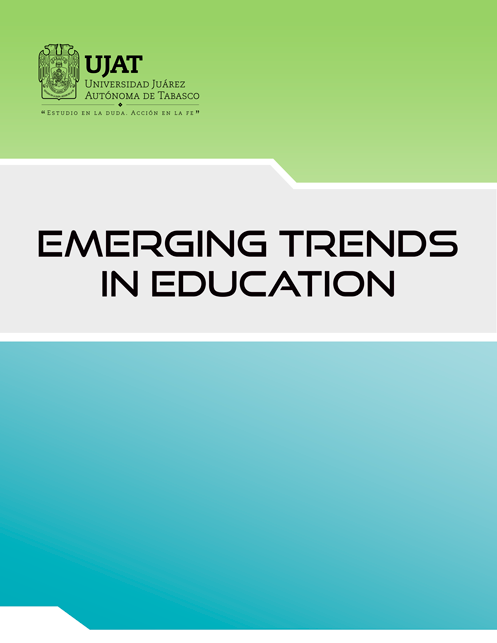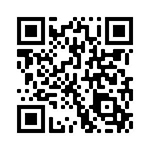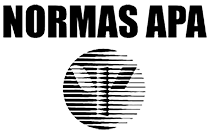Descripción del laboratorio de cambio: Una propuesta para aprender a aprender en la organización escolar
DOI:
https://doi.org/10.19136/etie.a5n9.5059Resumen
Se discute, a nivel descriptivo y exploratorio, cómo el Laboratorio de Cambio (LC) puede contribuir al desarrollo de Aprender a Aprender (AaA) en la organización escolar. Se señala la pertinencia de desarrollar esta competencia para afrontar contextos educativos de rápida transformación y creciente volatilidad. Dado que enseñar a AaA involucra habilidades que interpelan diversos planos de la actividad colectiva, se propone el LC como modelo coherente para desarrollar esta competencia desde una perspectiva organizacional. Se plantea a la intervención como arena de negociación y renovación de significados orientada al incremento del AaA a partir del conocimiento y experimentación de sus componentes. El objetivo del trabajo consiste en responder: ¿Qué modelos de formación contribuyen a la reformulación de las prácticas profesionales a fin de promover el AaA en el centro escolar?; ¿Cómo es posible contribuir a la conformación de un repertorio de prácticas educativas coherente con los valores y atributos de tal competencia? El artículo subscribe principios de la teoría de la actividad por medio de las nociones sistema de actividad y aprendizaje expansivo, útiles para enfocar el proceso de aprendizaje organizacional de frente a la transformación cualitativa del trabajo escolar.
Palabras clave: Aprender a Aprender, Laboratorio de Cambio, intervención formativa, teoría de la actividad, descripción.
Referencias
Ajello, A. M., & Torti, D. (2019). Imparare a imparare come competenza chiave di cittadinanza e come soft skill. Scuola democratica, learning for democracy, 1, 63-82.
Bata, P., Alistair, N., & David, A. (2022). Activity Theory as a Tool for Understanding Complexities in Extended Organizations. Science Journal of Business and Management, 10 (1), 47-54.
Brito, H. (2017). Habla resistiva e intervención formativa en una organización escolar. Polis: Investigación y Análisis Sociopolítico y Psicosocial, 13 (2), 73-105.
Brito, H. (2019). Teoría de la actividad, intervención formativa y contexto escolar. Revista Diversa. Escritos pedagógicos, 2 (2-3), 09-27.
Brito, H. (2020). Intervención formativa y seguimientos observacionales con directivos de un hospital en México. Revista de Psicología y Ciencias del Comportamiento, 11 (2), pp. 19-38.
Brito, H. (2021). Apprendere per il lavoro o per la vita? Analisi preliminare di un’intervista a docenti su Apprendere ad Apprendere in Italia e Spagna. In P. Falzetti (Ed.). I dati IN- VALSI come strumento per migliorare e valutare le competenze trasversali. IV Seminario “I dati INVALSI: uno strumento per la ricerca e la didattica (pp. 49-67). Franco Angeli.
Brito, H., Alby, F., & Zucchermaglio, C. (2021). Group membership and social identities in a formative intervention in a Mexican hospital. Frontiers in Psychology. Organizational Psychology, 12 (786054).
Brito, H., Stringher, C., Huerta, & Scrocca, F. (2021). Pratiche docenti sull’Apprendere ad Apprendere: attività e orientamenti. In C. Stringher (Ed). Apprendere ad apprendere in prospettiva socioculturale (pp. 119-145). Franco Angeli.
Cárdenas, V., Silva, I., & Brito, H. (2021). Apprendere ad Apprendere in Messico dalla scuola dell’infanzia alla secondaria di secondo grado. In C. Stringher (Ed). Apprendere ad apprendere in prospettiva socioculturale (pp. 211-226). Franco Angeli.
Castro, W. (2018). A Change Laboratory professional development intervention to motivate university teachers to identify and overcome barriers to the integration of ICT. Outlines. Critical Practice Studies, 18 (1), 67-90.
Claxton, G. (2014). La escuela como aprendizaje epistémico: el caso de construyendo el poder para el aprendizaje. Infancia y Aprendizaje. 37 (2), 227-247. https://doi.org/h3mv
Clot, Y., & Kostulski, K. (2011). Intervening for transforming: The horizon of action in the Clinic of Activity. Theory y Psychology, 21 (5), 681–696.
Colombo, M., Curone, G., Alcover, S., Lombardo, E., Martínez Fron- tera, L., & Pabago, G. (2016, Junio). Avance del ciclo expansivo en un equipo de docentes universitarios para la promoción de habilidades argumentativas en la lecto-escritura académica [Ponencia]. VIII Congreso Internacional de Psicología y Educación, Alicante, España.
Comisión Europea. (2007). Competencias clave para el aprendiza- je permanente. Un marco de referencia europeo. Luxemburgo: Oficina de Publicaciones Oficiales de las https://bit.ly/3HFhEn4
Comisión Europea. (2018). Proposal for a council recommendation on key competences for lifelong learning. Official Journal of the European Union. C 189/7. https://bit.ly/3OynYPJ
Deakin Crick, R., Stringher, C., & Ren, K. (Ed.) (2014). Learning to learn. International perspectives from theory and practice. Rout- ledge.
Diao, C., Zhou, X, Mao, Q., & Hong, J. (2022). The Development of Transformative Agency of Teachers in Teaching Research Activities in China. Frontiers in Psychology, 12:724175.
Engeström, Y. (2001). Expansive Learning at Work: Toward an activity theoretical reconceptualization. Journal of Education and Work, 14 (1), 133-156.
Engeström, Y. (2011). From design experiments to formative interventions. Theory y Psychology, 21 (5), 598-628.
Engeström, Y. (2015). Learning by expanding: An activity-theoretical approach to developmental research (2da Ed.). Cambridge University Press.
Engeström, Y., Virkkunen, J., Helle, M., Pihlaja, J., & Poikela, R. (1996). Change laboratory as a tool for transforming work. Lifelong Learning in Europe, 1 (2), 10-17.
Engeström, Y., & Sannino, A. (2010). Studies of expansive learning: Foundations, findings and future challenges. Educational Research Review, 5, 1-24.
Engeström, Y., y Sannino, A. (2016). El aprendizaje expansivo en movimiento: aportaciones de la investigación en curso. Infancia y Aprendizaje / Journal for the Study of Education and Development. 39 (3), 17-33. https://bit.ly/3zTLrXx
Garraway, J., Cupido, X., Dippenaar, H., Mntuyedwa, V., Ndlovu, N., Pinto, A. y Purcell van Graan, J. (2021). The Change Laboratory as an approach to harnessing conversation for academic development. International Journal for Academic Development. https://doi.org/h3m4
Gonzales-Miranda, D. R., Ocampo-Salazar, C. A., & Gentilin, M., (2018). Organizational Studies in Latin America. A Literature Review (2000-2014). Innovar, 28 (67), 89-109.
Guberman, A., & Smith, K. (Eds.). (2021). Expansive Learning in Teacher Education. Frontiers Media SA.
Haapasaari, A., Engeström, Y., & Kerosuo, H. (2016). The emergence of learners’ transformative agency in a Change Laboratory intervention. Journal of Education and Work, 29 (2), 232-262.
Hager P., & Halliday, J. (2006). Recovering Informal Learning: Wisdom, Judgment and Community (Vol. 7). Springer.
Hautamäki, J., & Kupiainen, S. (2014). Learning to learn in Finland. Theory and policy, research and practice. En R. Deakin Crick, C. Stringher & K. Ren (Eds.), Learning to learn International perspective from theory and practice (pp. 226-248). Routledge.
Ho, J., Hung, D., Chua, P. H., & Binte Munir, N. (2022). Integrating Distributed with Ecological Leadership: Through the Lens of Activity Theory. Educational Management Administration & Leadership, 7(5), 1-21.
Holzman, L. (2006). Lev Vygotsky and the new performative psychology: some implications for business and organizations. En D. M. Hosking & S. McNamee (Eds.). The social construction of organization (pp. 187-213). Liber - Copenhagen Business School Press.
Jones, A., & Kessler, M. (2020) Teachers’ Emotion and Identity Work During a Pandemic. Frontiers in Education, 5 (583775).
Laitinen, A., Sannino, A., & Engeström, Y. (2016). From controlled experiments to formative interventions in studies of agency: methodological considerations. Educação. 39 (Núm. Esp.), 14-23.
Lawless., A., & Willocks, K. (2021): The wicked problem of employee wellbeing: creating safe space within a change laboratory. Action Learning: Research and Practice. https://doi.org/gkbshk
Marcuccio, M. (2016). Imparare a imparare nei contesti scolastici. Prospettive e sfide per l’innovazione didattica. Armando editore.
Montoro, C. (2016). Learn or earn? Making sense of language teaching and learning at a Mexican university through a Change Laboratory intervention. Learning, Culture and Social Interaction, (11), 48-57.
Organización de las Naciones Unidas para la Educación, la Cien- cia y la Cultural [UNESCO]. (2013). Toward Universal Learning: What Every Child Should Learn. Reports No. 1. UNESCO Institute for Statistics and the Center for Universal Education at the Brookings Institution.
Organización para la Cooperación y Desarrollo Económico [OCDE]. (2009). Informe PISA 2009. Aprendiendo a aprender (Vol. III). OCDE. https://bit.ly/3Odsi71
Patera, S. (2018). Learning to learn in Latin America: A quali-quantitative comparative analysis of national curricoli and educational systems of compulsory education in Latin America. Working Paper INVALSI N. 32/2018, 1-56.
Pereira-Querol, M. A., Beltran, S. L., Montoro, C., Valenzuela, I., Castro, W., Tresserras, E., & Esteve, O. (2019). Intervenciones formativas en educación y aprendizaje en el trabajo: aplicaciones del Laboratorio de Cambio en Iberoamérica. Revista Internacional de Educación y Aprendizaje, 7 (2), 83-96.
Persson, J., Svensson, A., Lindén, I., Kylén, S., & Hägglin, C. (2022). Aspects of Expansive Learning in the Context of Healthy Ageing. A Formative Intervention between Dental Care and Municipal Healthcare. International Journal of Environmental Research and Public Health, 19(1089).
Sannino, A. (2010). Teachers’ talk of experiencing: Conflict, resistance and agency. Teaching and Teacher Education, 26, 838- 844.
Stringher C. (2008). Definizioni e modelli dell’apprendere ad apprendere per il lifelong learning. In Alberici A (Ed.), La possibilità di cambiare. Apprendere ad apprendere come risorsa strategica per la vita (pp. 111-143). Franco Angeli.
Stringher, C. (2014). What is learning to learn? A learning to learn process and output model. En R. Deakin Crick, C. Stringher & K. Ren (Eds.), Learning to learn. International perspectives from theory and practice (pp. 43-89). Routledge.
Stringher, C., Di Rienzo, P., Brito, H., Davis, C., & García, E. (2019). Aprender a aprender en América Latina: Una reseña sistemática de la literatura. En R. Deakin Crick, C. Stringher & K. Ren (Eds.), Aprender a aprender. Perspectivas internacionales, desde la teoría y la práctica (pp. 359-382). Trillas.
Tuomi-Gröhn, T., & Engeström, Y. (2003). Conceptualizing trans- fer: From standard notions to developmental perspectives. En T. Tuomi-Gröhn &. Y. Engeström (Eds.), Between school and work: New perspectives on transfer and boundary crossing (pp. 243-267). Pergamon Press.
Vilela R., Querol M., Beltran S., Cerveny G., & Lopes, M. (2020). Collaborative Development for the Prevention of Occupational Accidents and Diseases: Change Laboratory in Workers’ Health. Springer.
Virkkunen, J. (2006). Dilemmas in building shared transformative agency. Activités, 3 (1), 43-66.
Virkkunen, J., & Ahonen, H. (2011). Supporting expansive learning through theoretical-genetic reflection in the Change Laboratory. Journal of Organizational Change Management, 24 (2), 229 – 243.
Virkkunen, J., & Newnham, D. (2013). The Change Laboratory: A tool for collaborative development of work activities. Sense publishers.
Zucchermaglio, C. (2013). Cognizione al lavoro. EULED. Zucchermaglio, C., & Alby, F. (Eds.). (2006). Psicologia culturale delle organizzazioni. Carocci.
Publicado
Número
Sección
Licencia
Derechos de autor 2022 Emerging Trends in Education

Esta obra está bajo una licencia internacional Creative Commons Atribución-NoComercial-SinDerivadas 4.0.





























